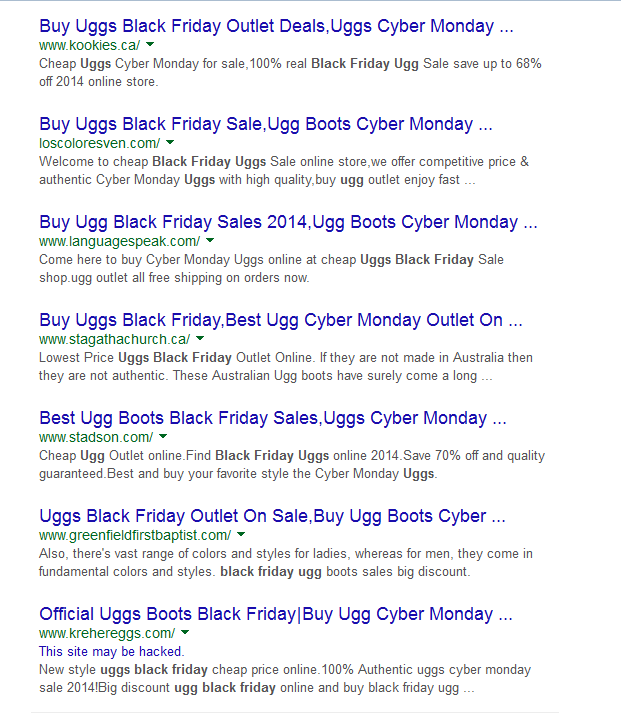We’ve seen the infographics and read the articles. Year after year, the statistics showing the outcome of the mad online shopping spree around this time are staggering yet eye-opening — for businesses, they’re very exciting to look at.
We owe these numbers from groups who took interest in observing and documenting consumer behaviour as retailers continue to see this fascinating trend in sales every Friday and Monday after Thanksgiving.
Indeed, Black Friday and Cyber Monday (or some calls it Mega Monday) captured everyone’s attention, including the media. Some tech writers even believe that sales this year could be record-breaking.
But before we find out the numbers soon, I’ve rounded up below some notable findings and statistics from 2013, and predictions we can wrap our heads around:
- comScore has recorded an expenditure of $ 1.735 billion from last year’s Cyber Monday online holiday shopping alone. Sales on this day is expected to grow by 15 percent. Amazon UK and Adobe have made a similar prediction, with the former claiming it “will be the biggest day ever for online retailers”.
- US shoppers plan to increase their spending this year, according to Accenture.
- Millennials (aged 18 – 29) are expected to shop more on Black Friday and Cyber Monday either online and in-store, according to a survey by Bankrate. The same survey also points out that 34% of in-store shoppers plan to use their debit card while 24% will use their credit card. For consumers buying online, the behaviour is reversed: 46% are expected to buy using credit cards while 43% will use debit cards.
- 87% of items purchased in 2013 are electronic, says Nextopia.
- Traffic in online product review sites peak during this holiday shopping season. In the UK, traffic continues to swell until Boxing Day. Last month, it is found out that social media can influence shopping behaviour.
- Silverpop has predicted “historic shifts” in email traffic—meaning retailers will be sending a high volume of emails to their clients—from Black Friday stretching to Cyber Monday. At least 35% of users are also expected to click links on these emails while on a mobile device.
- Majority of shoppers on Twitter are very dependent on their smartphones to check prices, find out about sales, and make purchases.
It’s apparent that majority of the spending trend is increasing every year, regardless of the state of economy, and that people are also beginning to take notice of other trends, such email volume, traffic share outside retail sites, and the influence of social media. On a security standpoint, introducing these new variables may potentially change the threat landscape.
Whether you have prepared your shopping list before Thanksgiving kicks off or not, first and foremost, we advise users to make ready their systems as well. As there will be a lot of sites they might be visiting and links to click-through, it is imperative that budget shoppers and bargain hunters be smart and safe surfers, as well. Here’s a list of do’s and don’ts we’ve put together to help you, dear Shopper, become one.
Do…
…recall and follow basic safe computing and online privacy tips. This means (1) updating all software installed on your system to lessen the risk of exploits taking advantage of vulnerabilities and letting attackers or malware in; (2) enabling your firewall (if it’s disabled somehow); (3) and installing anti-malware and anti-exploit (if you haven’t yet).
…visit and bookmark only legitimate retail and e-commerce sites where you will likely do your online transactions and purchases. If you have to, arrange them properly in your browser’s Bookmark so you can just click it to visit instead of typing the URL on the address bar. Doing so eradicates the possibility of committing URL misspellings, which could lead to sites you didn’t ask for. If you find typing more straightforward, then you may want to install a browser app that blocks URLs with typos. For example, there’s a nifty app called Block Misspelled Websites for Chrome.
If you’re using search engines to look for deals, you may find some results that, if you look closely, are highly suspect.

Let’s see. A language site and church have a Black Friday Ugg boots sale? Uhh…
…install ad-blockers. This is especially applicable to users who are bothered by or too tempted to click them, knowing the potential risks, while visiting sites. We’ve seen ads get exploited by online crooks now and then, and more often than not, we can’t tell if an ad has a bad surprise in store once clicked.
…turn on that pop-up blocker. Most browsers already have this feature by default. If your browser doesn’t have it, an app may help. Don’t worry, you can always allow pop-ups to show once you’re on a trusted site.
…enter your personal information on an encrypted page if you’re signing in or registering to a website. Your quick clue is the https at the address bar. If it’s not https, then no matter how awesome that deal is, the site admin apparently didn’t take the necessary steps to secure your info. That in itself should be a deal-breaker.
…log off from the sites you purchased items from or transacted in. This will ensure that no one will be able to use, fiddle with, or view stored personal information in your account if you happen to share your computer or mobile device with someone else.
Don’t…
…just click links from emails you receive from (supposed) retailers or from anyone on your social feeds. The best scammers and fraudsters know real-world marketing tactics, and they can be good at it. It’s no surprise to see them on sites and services people normally gravitate to or check everyday. So think twice and scrutinize the links before you click!
…give out all your information—most especially if some fields on the form you’re using to register are optional.
…use debit cards when buying online. Not only do they have zero benefits and perks tied to them, they are also not as protected or insured against fraud activity as credit cards are.
Although this post is for the upcoming online spree that is expected to happen in Thanksgiving, Black Friday, and Cyber Monday, note that these practices can and should be done at any time of the year whenever one plans to go shopping online.
Jovi Umawing










